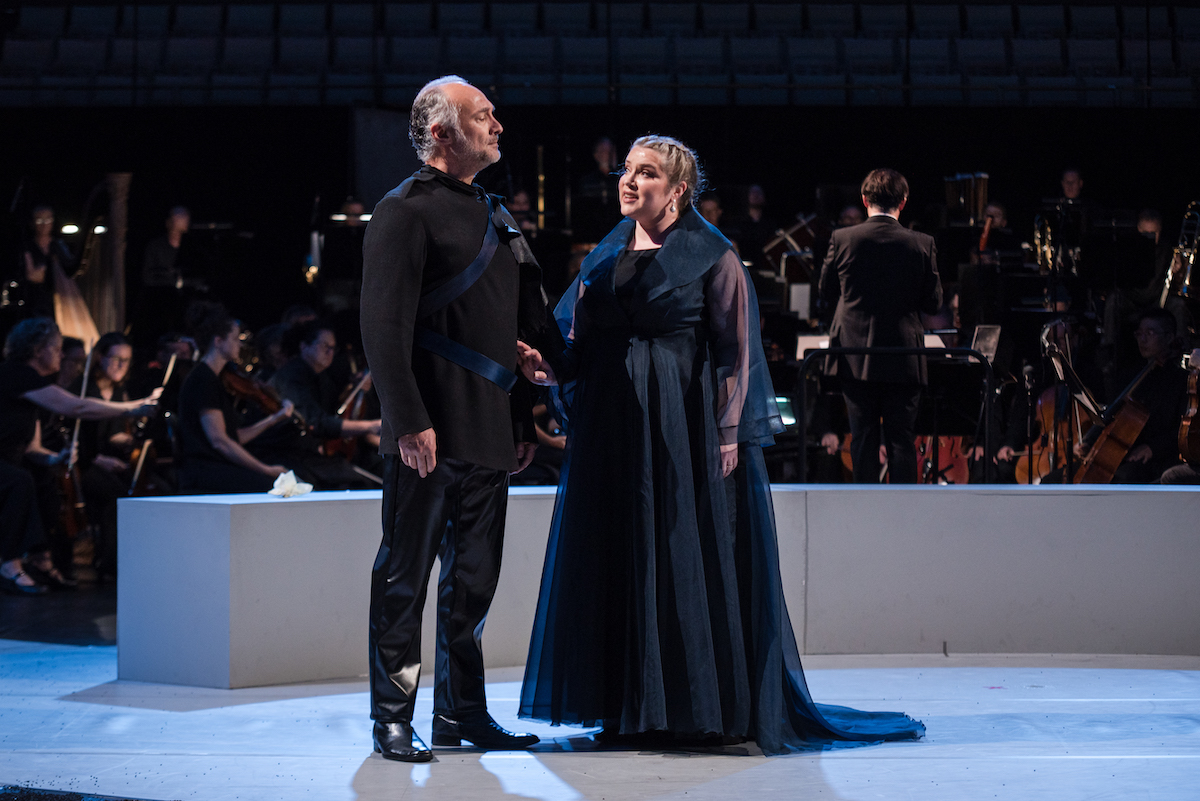Giuseppe Verdi’s Macbetto, based on the core of Shakespeare’s Macbeth, was composed in his formative opera period in 1847, some 40 years earlier than his final two marvellous tributes to Shakespeare, Otello and Falstaff.
Although it does not offer the sweeping grandeur of Don Carlos or match the popularity of Rigoletto or La Traviata, Macbeth includes some very fine music, particularly in the principal arias and in the duets between husband and wife.

José Carbó and Anna-Louise Cole in Opera Queensland’s Macbeth. Photo © Jade Ferguson.
The work deviates from Shakespeare’s original with Verdi concentrating his opera on three principal figures: Macbeth, Lady Macbeth and the Witches.
While Macbeth (sung by José Carbó) is the central figure in the unfolding of the tragedy, Lady Macbeth (Anna-Louise Cole) is clearly the more commanding character, as her music proves. The Witches are portrayed as a chorus of voices, rather than three hags. In turn they form an important part of a larger choral group based on the Greek chorus model, by turns narrator, commentator and herald.
Other characters are reduced in stature. Macduff’s role is substantially curtailed and Banquo disappears less than halfway into the...










I think Ms Conway and I must have seen different Opera Queensland productions of Macbeth.
Contrary to her assertion, there was nothing static or ‘stand-and-deliver’ (as is indeed usual for concert performances) in this production of Verdi’s Macbeth. It was a semi-staged concert performance and I do wonder how much Ms Conway actually saw. Clearly, she did not see Banquo’s reappearance on the screen – the screen being very much part of the staging. For Macbeth less is more. The drama is entirely carried by the music and the singers. This production and the performances had me pinned back in my seat as it did everyone with whom I have spoken. It was a wonderful achievement for Laura Hansford in her first Director role and deserved the standing ovation it received on opening night.
And as for ‘visual energy and theatricality’ – well I have seen many, mostly European, opera productions being destroyed by visual energy and theatricality, often created by a theatre director with little idea about or affinity for opera. It used to be called Regietheater; it is not necessary in well-produced opera as demonstrated by Opera Queensland. – Christa Critchley